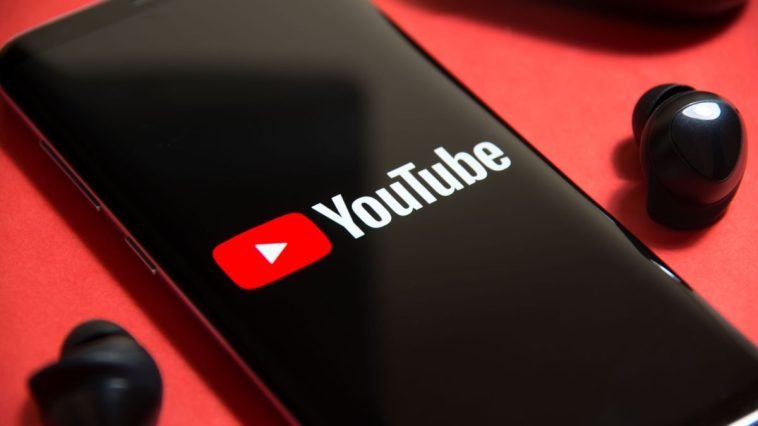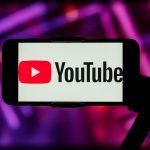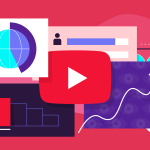Introduction.
YouTube has grown into a platform where content creators can turn their passions into a career. With over 2 billion logged-in users each month, earning money through YouTube is an exciting opportunity for many.
However, monetization on the platform comes with clear rules and policies. When these rules are not followed, channels can face violations that affect their ability to earn revenue.
I understand how frustrating it is to work hard on videos and then receive a notification about a policy violation.
In this post, I will break down why these violations happen, offer a step-by-step guide on how to fix them, and provide helpful links and resources to support you on your journey.
Understanding the Importance of Following YouTube Policies
Following YouTube’s monetization policies is not just about keeping your channel safe from penalties. It’s about building trust with your audience and with the platform itself. YouTube’s policies are designed to create a space that is safe and fair for both viewers and creators.
By understanding these rules, you can create content that not only follows the guidelines but also resonates with your audience.
This means your content is more likely to be promoted by the platform and seen by more people.
When your channel faces a violation, it can feel overwhelming. However, these issues are usually solvable if you take the right steps.
I have been through challenges like this myself, and I know that a clear, calm plan can turn a setback into a chance to improve your channel.
I aim to share what I have learned to help you navigate these issues and get back on track quickly.
Common Reasons for Monetization Policy Violations
Many violations occur because of common mistakes or misunderstandings of the policies. Here are some of the reasons you might face a violation:
- Content that is too similar to other videos: Originality is key. Content that appears to be copied or closely resembles another creator’s work might trigger a violation.
- Inappropriate content: Videos that include violent, hateful, or otherwise unsuitable content can lead to a policy strike.
- Misleading metadata: Using clickbait titles, tags, or descriptions that do not reflect the actual content of the video can result in a violation.
- Copyright issues: Using copyrighted music, images, or clips without proper permissions can cause your monetization.
- Ad-friendly guidelines: Not following the guidelines that advertisers expect can also cause issues. For example, content that includes strong language, controversial topics, or adult themes may not be eligible for monetization.
These points are outlined in YouTube’s guidelines, and you can always check them on the YouTube Help Center for more details.
How Do I Solve Issue Violation Of The YouTube Monetization Policies?
If you’ve received a violation notice, here are the steps you can take to resolve the issue:
1. Read the Notification Carefully
Start by reading the email or notification from YouTube. The message usually explains what content or behavior triggered the violation.
It might also include a link to the policy that was violated. This step is crucial because you need to understand exactly what went wrong.
2. Review the Relevant Policy
Head over to the YouTube Policies page and read the specific guideline mentioned in the notification. This will give you clarity on how your content did not meet the requirements.
3. Make Necessary Edits or Removals
Once you understand the issue, decide if you can edit the video, change the metadata, or remove the problematic section.
Sometimes, a small edit can make the video compliant with the policy. If the issue is with the entire video, you might need to remove it from your channel temporarily.
4. Appeal if You Believe It’s a Mistake
If you are confident that your content follows the guidelines, you can appeal the decision. Use the link provided in the notification to submit an appeal.
Be polite and clear in your explanation, and provide evidence that supports your case. Remember, this process might take a few days, so try to be patient.
5. Monitor Your Channel and Content
After resolving the issue, keep a close eye on your channel. Regularly review new uploads and check if they meet YouTube’s standards.
I found that creating a checklist based on YouTube’s guidelines before uploading videos has been very helpful. This proactive approach reduces the risk of future violations.
Additional Tips to Stay Compliant
- Keep Up with Policy Changes: YouTube sometimes updates its policies. Subscribe to YouTube’s creator newsletter or check the Help Center regularly.
- Engage with the Community: Follow forums or groups where other creators discuss monetization challenges and share tips. This can provide you with insights and early warnings about potential issues.
- Use YouTube’s Resources: The YouTube Creator Academy is a great place to learn about best practices. It offers free courses on everything from content creation to community engagement.
- Document Your Process: When you edit a video to comply with guidelines, keep a record of what you changed. This can be useful if you face future issues or need to refer back to your adjustments.
- Stay Calm and Professional: It is easy to feel upset when your content is flagged. Keeping a cool head will help you address the problem more efficiently and professionally.
FAQs
How common are monetization policy violations on YouTube?
Monetization policy violations happen to many creators, especially those who are still learning the ropes.
About 10-15% of channels report issues at some point, but with careful attention to guidelines, you can greatly reduce this risk. For more statistics, you can check out industry reports on platforms like Statista.
What should I do if my appeal is rejected?
If your appeal is rejected, carefully review the feedback provided by YouTube. Make the necessary changes, and consider seeking advice from experienced creators or professional forums. Sometimes, a fresh perspective can help you see what might have been overlooked.
Can I reapply for monetization after a violation?
Yes, many creators have successfully reapplied after resolving their issues. Make sure that you follow all the guidelines and wait until any temporary suspension or strikes have been cleared before reapplying.
Is it possible to prevent these violations altogether?
While it’s hard to guarantee that you will never face a violation, staying informed and being proactive goes a long way. Using checklists, engaging with community resources, and continually reviewing YouTube’s policies are good habits that can help prevent future issues.
Further Resources and Useful Links
- YouTube Help Center: Explore detailed guidelines on policies and monetization issues directly from YouTube. YouTube Help Center
- YouTube Creator Academy: Learn best practices and tips directly from YouTube through free courses. YouTube Creator Academy
- Official YouTube Policies: Familiarize yourself with the exact rules and guidelines to avoid any missteps. YouTube Policies
- Creator Communities: Join communities on Reddit and Facebook where experienced creators share advice on handling monetization challenges. For instance, the r/YouTubeCreators subreddit is a great place to start.
In Conclusion
Dealing with a violation of YouTube’s monetization policies can be a stressful experience, but it is manageable with the right steps.
By carefully reviewing the guidelines, making the necessary adjustments, and appealing if needed, you can get your channel back on track.
Taking the time to understand the reasons behind these rules helps you grow as a creator and builds trust with your audience.
I hope this guide makes it easier to handle any issues you face with monetization policies. It is important to keep learning and adapting, and every challenge is an opportunity to improve your content and approach.
What steps will you take to resolve your YouTube monetization policy issues and keep your channel thriving?





GIPHY App Key not set. Please check settings